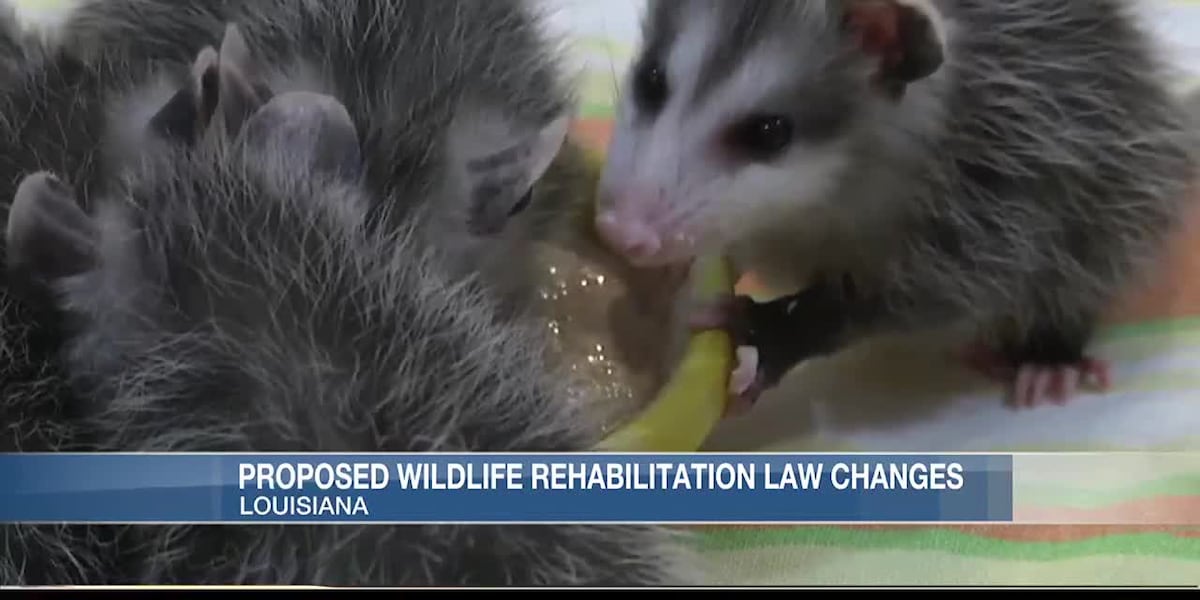
LAKE CHARLES, La. (KPLC) – A new bill moving through the state legislature has wildlife rehabilitators on edge, afraid it may put animals in the hands of the wrong people.
Authors of the legislation believe it would only help wildlife.
Current law requires extensive in-person training to become a wildlife rehabilitator, a role that’s growing, according to Rep. Lauren Ventrella (R-East Baton Rouge Parish). She proposes going digital to make getting that certification more accessible.
“There are people and you may know them within your communities that rescue these baby squirrels. Sometimes blind squirrels, okay, they’re blind. Or they’re quadriplegic. They fell out of a tree. Well right now there is no mechanism in place for people, certified rehabbers or not, to legally possess these animals,” Ventrella said.
The bill also eliminates the requirement for random inspections of rehab facilities.
“We want to create a sort of self-reporting process for two reasons. One, to streamline the process. And two, I know a lot of people have said to me, ‘Well, you know, I don’t really want people coming into my house without notice,’ and that’s kind of the intent to provide some notice,” Ventrella said.
But Wildlife and Fisheries State Wildlife Veterinarian Dr. Jim LaCour said announced inspections aren’t as effective.
“Human nature is when you get a call that someone is coming to inspect your facility, what are you going to do? You’re going to clean it up, if something is not right you’re going to fix it before they get there. The purpose is not to break down the door and cause stress to the person doing the rehab. The purpose is to ensure the well-being of the animals. It’s hard to do that if you’re inspections are announced,” Lacour said.
Wildlife rehabilitators throughout the state are concerned the bill will do more harm than good. Rehabilitator Teree Lartigue pointed to a possible loophole that could allow people to keep wildlife in certain circumstances long-term.
“If this bill goes through, it’s going to promote ‘Oh, the new law says we can keep a little baby whatever.’ No, you can’t. Or no, you shouldn’t. Let me say that. Are they aware that some of these little animals to be kept as ‘non-releasables’ or pets, they carry zoonotic diseases. They can transmit a disease to you. You can transmit a disease to them. Not fair to the animals, not fair to you, not fair to the general population,” Lartigue said.
This bill does not include all animals. It is limited to squirrels, skunks, possums, racoons, rabbits, and chipmunks.
Despite the questions raised in committee, the bill moved on with amendments to the full House for consideration.
Copyright 2024 KPLC. All rights reserved.
